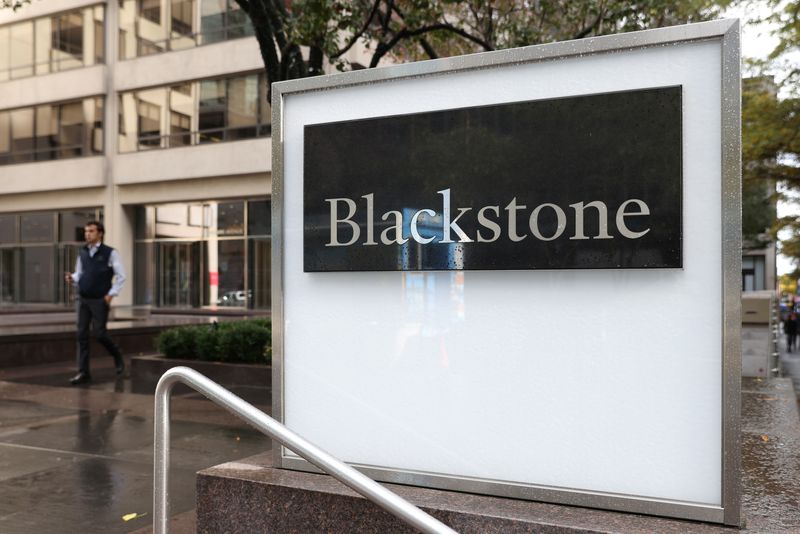By David Carnevali
(Reuters) - Private equity firms that deemed drug development too risky for their liking in the past are increasingly investing in the sector, raising dedicated funds and coming up with deals that compensate them for the uncertainty involved.
These firms are seeking to capitalize on the growing gap between the supply of capital for clinical research and the number of drugs competing for it, eight buyout executives and investors interviewed by Reuters said.
Annual spending on pharmaceutical research and development globally is projected to rise to $254 billion by 2026 from around $200 billion in 2020, according to Evaluate Pharma, a research firm focused on healthcare.
These deals are not structured as the leveraged buyouts that private equity firms are mostly known for. Instead, the buyout firms invest in the development of the drugs, typically when they are in so-called Phase 3 clinical trials, one step away from regulatory clearance. They negotiate with pharmaceutical companies the returns they will receive in advance.
In most cases, the drug makers start paying the money back to the private equity firms when the drug is being developed, either by issuing equity, tapping cash on hand or borrowing. They also share a slice of the newly developed drug's revenue with the private equity firms once it's approved.
Blackstone (NYSE:BX) Inc has been leading the charge, having made ten investments out of a $4.6 billion of a dedicated life sciences fund it launched in 2020.
"Over the last ten years there have been many more products that have emerged that are really important to fund but less funding available by the pharma companies," said Blackstone's global head of life sciences Nick Galakatos.
Among Blackstone's deals are a 300 million euro ($320 million) commitment to the development of Sanofi (NASDAQ:SNY) SA's immunotherapy drug Sarclisa, a $150 million investment in the advancement of Autolus Therapeutics (NASDAQ:AUTL) Plc's pipeline of cancer treatments, and a check of up to $1.15 billion to back Alnylam Pharmaceuticals Inc's drugs for diseases including for tackling cholesterol. Some of these deals came with investments in the stock of the drug developers and loans to them.
As its risk appetite for drug development grows, Blackstone has also been mulling the acquisition of companies with drugs still in clinical trials, as long as these companies also have some medicines that have hit the market, according to people familiar with the deliberations.
Blackstone established a major presence in the sector in 2018 after acquiring Clarus (NASDAQ:CLAR), an investment firm specializing in clinical trial deals with $2.6 billion in assets. The strategy was emulated last year by Carlyle Group (NASDAQ:CG) Inc when it acquired Abingworth, a peer of Clarus with $2 billion in assets.
Carlyle is now preparing to raise a dedicated life sciences fund, using the Abingworth team, that could amass several billions of dollars, according to people familiar with the fundraising plans. Carlyle made its first clinical-trial investment last August, committing up to $170 million to back an Opthea Ltd eye drug under development.
"We are big believers in what we've called the biopharma revolution and in the explosion of discovery and science," said Carlyle's global head of halthcare Steve Wise.
Blackstone has been presenting its bets as relatively safe investments. It told high net-worth investors in 2021 that the drugs in Phase 3 it invested in had an 86% approval rate.
Still, Blackstone's three-year-old life sciences fund has been off to a slow start when it comes to generating returns. It reported a net internal rate of return of just 2% as of the end of September, according to Blackstone's most recent quarterly earnings. By comparison, the predecessor fund that Clarus raised in 2018, before Blackstone took over, was delivering a 15% net internal rate of return as of the end of September.
Carlyle has not disclosed Abingworth's returns and a spokesperson did not respond to a request for information on them.
Other private equity firms racing to get a piece of the action include Apollo Global Management (NYSE:APO) Inc, which last year acquired a minority stake in life sciences investment firm Sofinnova Partners and committed up to 1 billion euros in its funds, and EQT (NYSE:EQT) AB, which acquired Life Sciences Partners (LSP), a life sciences-focused venture capital firm, in 2021.
VENTURE CAPITAL-STYLE BETS
To be sure, many private equity firms participate in the sector by just making venture capital-type investments in entire drug companies and allowing them to use the proceeds for their clinical trials. For example, KKR & Co (NYSE:KKR) Inc invested in gene-therapy company BridgeBio Pharma (NASDAQ:BBIO) Inc in an early-stage funding round in 2016, funded the company through its initial public offering in 2019, and continues to be its largest shareholder.

Private equity firms also provide capital to spin out drugs into new companies. Bain Capital, for example, created Cerevel Therapeutics by transferring Pfizer Inc (NYSE:PFE)'s neurology drugs under development to a newly created company in a $350 million deal in 2018.
"That is an example of taking an unloved asset out of a big company, providing funding and a big slug of capital, and creating a company that's got some diversity to it," said Tom Davidson, a partner focusing on the life sciences sector at investment bank PJT Partners (NYSE:PJT) Inc.